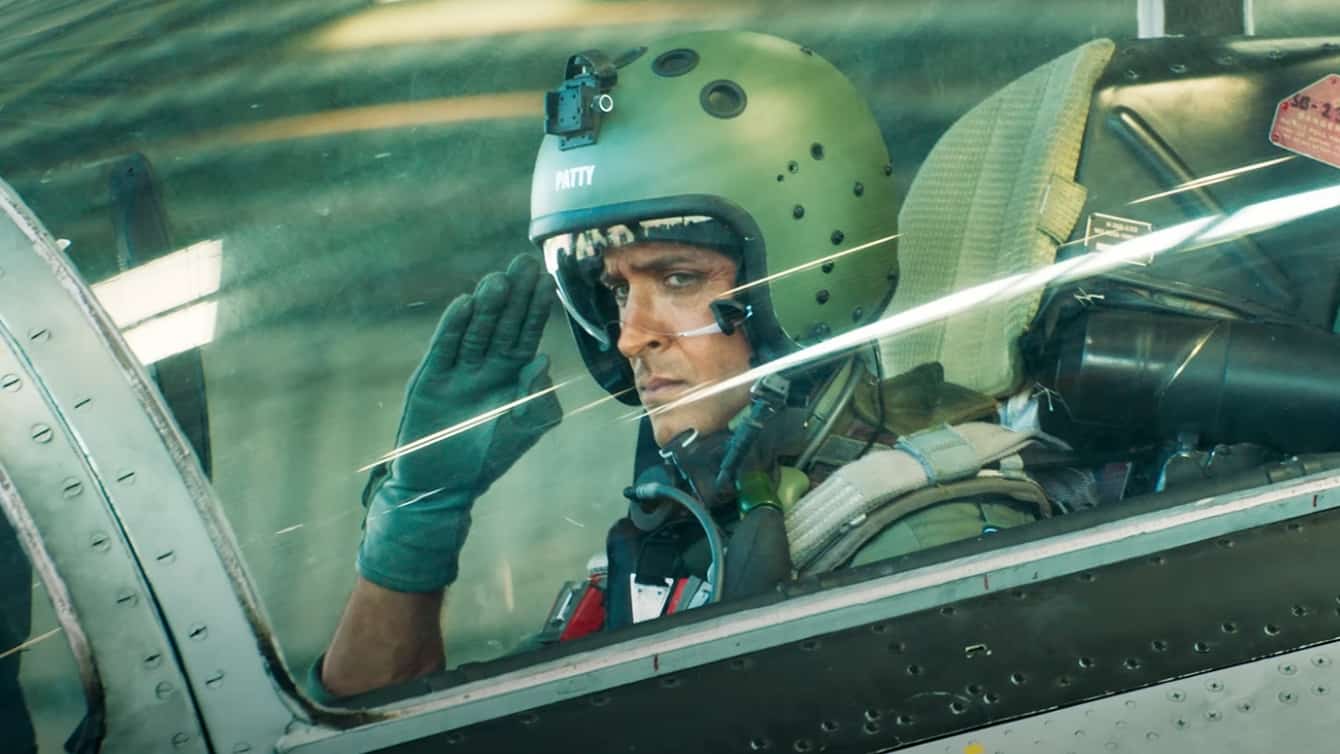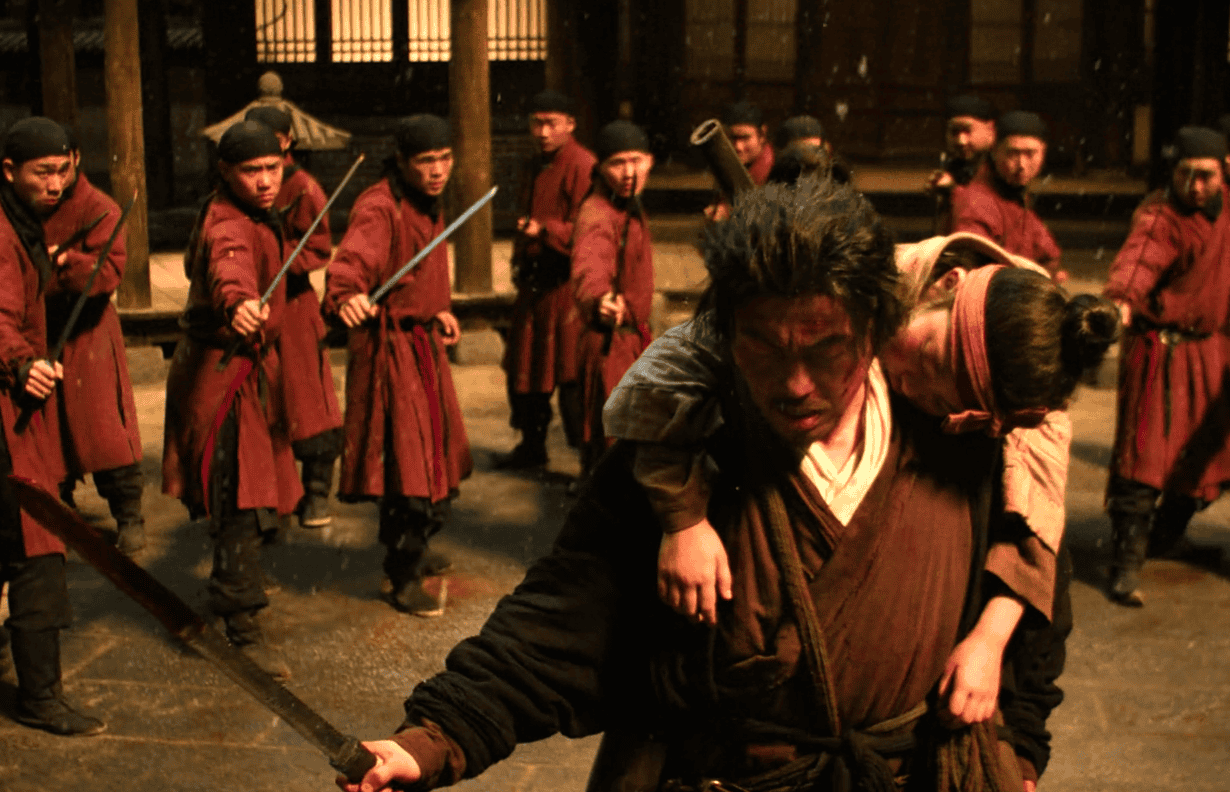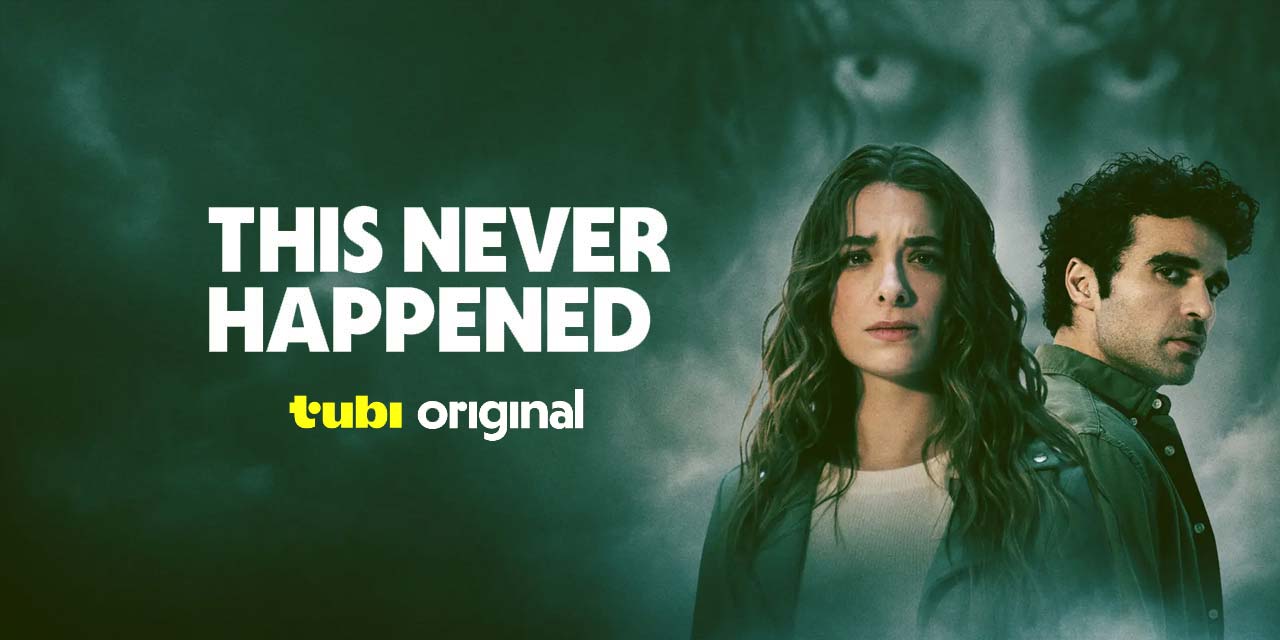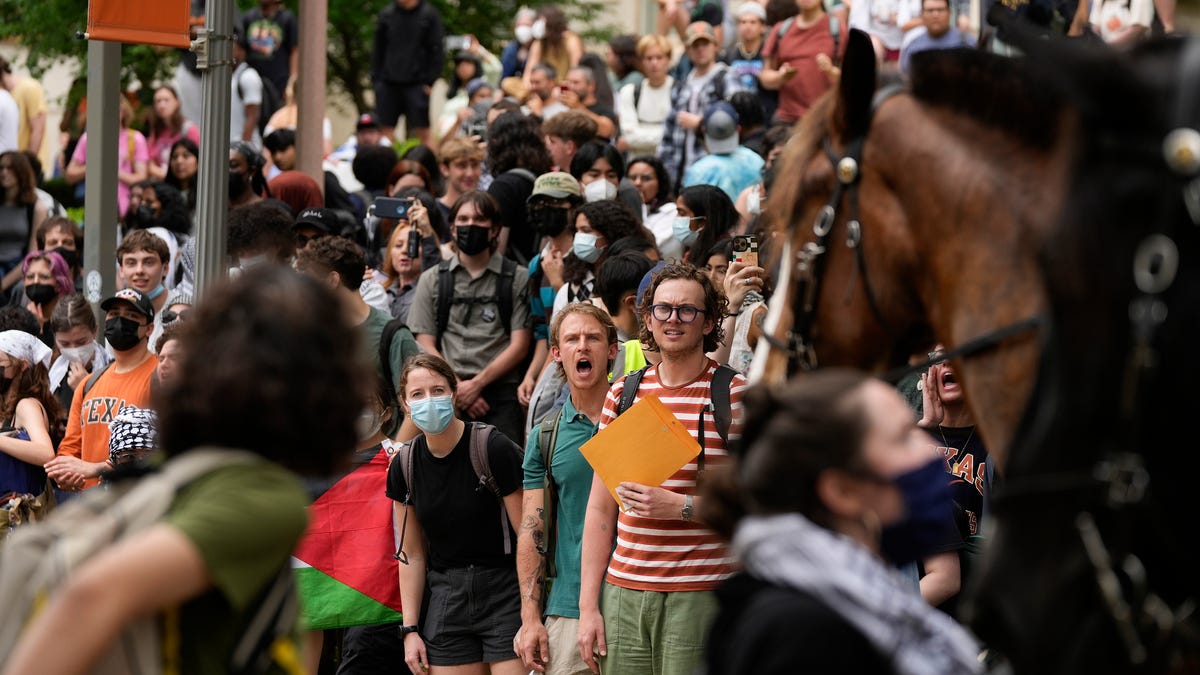Movie Reviews
Film Review: Fighter (2024) by Siddharth Anand

Hrithik Roshan takes to the skies in the first chapter of a new all-action franchise from Siddharth Anand.
Emotions and politics fly fast and hard in Siddharth Anand’s mega-budget Hindi-language “Fighter”, a new attempt at making the next big cinematic universe after his stints in Yash Raj Films’ Spy Universe, “War” and “Pathaan”. While “Pathaan” heralded the return of Bollywood legend Shah Rukh Khan, “War” saw him refine his partnership with the similarly beloved Hrithik Roshan, giving him another super-hunk super-spy role after “Bang Bang!”, a remake of the Tom Cruise/Cameron Diaz action rom-com “Knight & Day”. The shadow of Tom Cruise looms over Anand’s work with increasing prominence nowadays; “Pathaan” recruited “Top Gun: Maverick”‘s stunt coordinator Casey O’Neill as its second unit and action director, and now, Anand’s very own production company Marflix Pictures utilises Roshan’s lucrative leading man status into India’s very own “Top Gun” (complete with a villain modelled off Cruise’s hair and outfit in “Mission: Impossible II”). Spreading their wings from one extended universe into another is an exciting prospect for masala cinema, and with the billion dollar success of “Maverick” on the world stage, Roshan playing a pilot while Anand pilots behind the camera should send a heat-seeking missile towards the competition.
Follow our coverage of Hindi cinema by clicking on the image below
Their approach is as broad as they come. A crack team of IAF helicopter and jet pilots is assembled at Srinagar Airfield, bordering Kashmir, following a significant threat from Pakistani mujahideen working covertly under the funding of the Pakistani government. The squad is made up of some fun caricatures, including but not limited to the dorky rookie ‘Sukhi’ (Banveen Singh), wife-guy ‘Taj’ (Karan Singh Grover), no-nonsense girl-amongst-boys ‘Minni’ (Deepika Padukone), and (of course) their tortured but brilliant hotshot leader ‘Patty’ (Hrithik Roshan). They bicker, they train, they drink and party together, and gradually become a cohesive unit despite the inevitable ego growth that comes from knowing how to fly death machines worth the economy of a small country. But when a skirmish between Pakistan and India leaves some of our heroes behind enemy lines, faiths are shaken and tempers are flared as what was a national conflict becomes a deeply personal one.
Any alarm bells ringing about the shameless jingoism of making Pakistan an actively villainous presence in this narrative are absolutely real and legitimate, with Anand’s view on a current and long-running international conflict as deeply concerning, angry and reductive. The eventual fistfight between an aggrieved Patty and sadistic uber-bad guy Akhtar (first-time Rishabh Sawhney, excellent in a cartoonishly evil role) sees Hrithik seething his way through a monologue punctuated with suplexes and sucker punches about Kashmir’s ‘rightful’ Indian ownership, and how (if they’re not careful) Pakistan itself will become an Indian occupation. Given the touchiness of conflicts surrounding land ownership in this current moment, it’s difficult not to be left with a sour taste in the mouth with such vitriolic right-wing views being spouted by crowd-pleasing entertainment of this scale.
Ιt’s a film that’s not above its villains suicide-bombing a gang of flag-waving innocents as its initial conflict, and it somehow encourages both sides to play dirtier until the entire picture is practically vibrating with Islamophobia. Its highest emotional peaks come in the form of its Indian heroes screaming “Jai hind!” as they see their flag burning, which is inexplicably more painful than having their fingers snipped off. Bollywood deals in fantastic melodrama, we all know that, but there is a line that “Fighter” repeatedly crosses, becoming such a one-sided screech at its chosen enemies that it transforms into something unpleasant and just plain nasty.
It’s also no secret that action movies of this high a calibre can frequently be this politically reprehensible, yet also retain their towering status as exciting spectacles. Anand’s mission to give his country its first aviation action picture sees him take major inspiration from both “Top Gun” films, compounding their narrative beats into a single near-three hour epic, and also trying to apply some of the action tricks he learned from Casey O’Neill on “Pathaan”. His 250 crore budget has certainly given him the numbers to work with, and most of that goes towards some slick CG that thunderously establishes the mile-high world of the IAF. The training montages are engaging and the geography is initially tight, but the action does lose its way as each sequence becomes more repetitive than the last. In terms of proper stunt work with pilots and actors alike experiencing real G-force, “Top Gun” still has the upper hand, with too much of “Fighter”‘s aerial combat being obviously CGI, leaving the element of genuine, weighty danger to one side for most of the picture.
Instead, “Fighter”‘s pleasures lie in its commitment to the yearning melodrama between its good-looking cast. Our introduction to Patty sees him fly a jet upside down whilst landing as a show-off tactic, and a simple cocked eyebrow from Minni is enough to get the ball rolling for some ripe (if ultimately chaste) romantic tension between Roshan and Padukone. Much of the interpersonal drama takes place on runways at golden hour, Roshan’s razor-sharp jawline being practically made to have the setting sun bounce off it as his teary eyes do the heavy lifting. The film’s love language is power ballads and motorbikes, sunset regret and near-miss kisses, and is directed with so much feeling and brio that it’s almost enough to forget the hatred the film is otherwise capable of.
There are also some excellent dance numbers where Roshan is completely at home, especially in a disco-influenced party sequence where Anil Kapoor’s hard-ass commander Rocky lets his hair down (metaphorically, of course: there is no force on earth that can fell his impressive quiff) with a glass of whisky and a tight-fitting turtleneck. Had “Fighter” simply been about the vibes shared by pilot pals and the COs who love throwing the book at them, it would be a far more successful film than the lumbering, surprisingly barbaric beast it turns into.
While it’s a more grounded chance for Anand to flex his action muscles than his Yash Raj spy films, it’s a significant step backwards for him as a maker of lighthearted entertainment. His spy adventures were hardly unimpeachable as nationalistic manifestos, but they had a self-awareness that stopped them short of being actively offensive. His own franchise launch at Marflix crosses that rubicon and ends up as needlessly full of itself and drunk on the power of its nation, muddying the waters and speaking up unduly when the real world is experiencing its own agony at the same moment. Where the “Fighter” saga goes from here is unknowable, yet one can only hope these handsome people don’t get any more ugly than this.

Movie Reviews
Film Review: Eye for an Eye 2 (2024) by Yang Bing Jia

“A blind man, a kid. You claim to be bounty hunters. Right?”
A surprise hit after its release on various streaming platforms, director and writer Yang’s short online wuxia film “Eye for an Eye: The Blind Swordsman” (2023) starring Xie Miao as the protagonist went on to generate a fair amount of attention both in Mainland China and overseas. Therefore it is inevitable that a sequel soon follows with both Yang and Xie returning. Though scheduled for a wilder cinema release, the much anticipated and a longer follow-up still ended up streaming on iQIYI.
This second installment kicks off in Youzhou during the Tang Dynasty. Believing that five fugitives are hiding in a gambling den, blind swordsman Cheng Xia Zi shows up to arrest them. Naturally, they try to fight their way out but of course they are no match for the lethal bounty hunter. Apparently, Cheng is trying to make as much money as possible so he can retire in Chang An, his old hometown.
Meanwhile, in another part of town, a pair of homeless orphans, Zhang Xiao Yu and her little brother Xiao Cao, are stealing food and are caught up in a confrontation between ruthless officer Li Jiu Lang and his rebels. The merciless Li kills the defenseless rebels, Zhang manages to escape but her brother is not that lucky. While on the run, she accidentally bumps into the grumpy Cheng who reluctantly shelters her. After a while, they start to bond and eventually work as a team to bring the cold-blooded Li and his little empire down.
Yang’s sequel plays like a proper wuxia film probably because of its longer running time which allows him to further develop the main lead characters and the dramatic elements. A subplot that concentrates on the orphan Zhang Xiao Yu, played by Yang En You, a traumatized little girl who is obsessed with revenge after the tragic death of her brother. The bond between her and Blind Cheng which takes on centerstage is engaging and not rushed. However, it seems like director Yang is doing a Zatoichi style adventure with a bit of Lone Wolf and Cub thrown in for good measure at times.
Visually the film looks great, especially the outdoor location of rolling hills, forests and mountain ranges. Besides, the detailed town buildings plus their interiors all look lived in and authentic. The fast and crisp fight sequences designed by action choreographers Qin Peng Fei and Du Xiao Hui are impressive, though quite brutal. Also, the fight which features a thug wielding a pair of flaming sword looks interesting and fun, but it is borrowed from Su Chao Pin and John Woo’s “Reign of Assassins” (2010). Though epic, the end fight between Cheng and three hundred guards seems too far fetched and rushed. However, Yang’s use of split screens during the film’s lighter moments is refreshing.
Actor and martial arts champion Xia Miao, born in Beijing, is no stranger to Asian action films who appears in more than thirty films and TV series. He started his film career as a child actor alongside Jet Li in “The New Legend of Shaolin” (1994) and again in “My Father is a Hero” (1995), these films gained him a reputation both overseas and locally. After that he takes a break to study and then makes a comeback in the TV series “Legend of the Shaolin Temple” (2006) and “The Kung Fu Master” (2010). Xia Miao’s portrayal of the blind bounty hunter Cheng is impressive and his moves are equally smooth and convincing during the many fight sequences.
The introduction of a second lead character, the vengeful child, Zhang Xiao Yu (Yang En You) is a nice touch. Child star Yang is impressive and shines as the orphan Zhang, as she effortlessly tackles the emotional and dramatic moments of the film. In addition, her interchange-like bickering and the playful moments with swordsman Cheng are interesting to watch and a nice distraction from the otherwise violent fight scenes, besides adding the much needed emotional connection. Furthermore, Hung Tao is adequately evil and memorable playing the cruel officer Li Jiu Lang.
Even though the storyline of “Eye for an Eye 2” is predictable and familiar, it is still impressive and satisfying production. Besides, the well written lead characters are a plus, and when topped off with the well choregraphed action and engaging visuals, it all makes for a balanced sequel.
Movie Reviews
Challengers Movie Review: This intense and intimate tennis drama almost serves up an ace

Challengers also has brilliant world-building, which extends to even the off-court action. We initially see Art, married to Tashi, waking up at the Ritz Hotel to a routine charted out with a choreographed workout and a restricted diet with even a bottled drink labelled ‘Electrolytes’. On the contrary, we see a hungry Patrick, just up from his sleep in the car, borrowing half a doughnut from someone he just met. While these parallels are thought-worthy enough, we get another flashback moment in which Patrick tells Art, “Tashi Duncan is gonna turn her whole family into millionaires,” and Art later ends up living just that life. In another scene, after Patrick and Art play the first set of the Challenger match, the film takes us back to a time when Tashi meets Patrick before the finale match. In a different context, Tashi says, “You typically stagger around the second round,” hinting at how he gets overconfident if he wins the first set. This eventually comes true, as he falters in the second set after winning the first one in the match against Art. If observed and understood keenly, this staging and the callbacks add immense value to the film’s narrative.
Challengers is abundant with scenes of coitus and intense lovemaking akin to the sexual exploration featured in Guadagnino’s Call Me By Your Name, a different genre film. These scenes are placed at the right intervals to take your mind away from the monotony of tennis. Guadagnino gets us quite gripped in the world of tennis, but he also carefully distracts us away from it in a good way. We hear the commentator say, “Code violation, audible obscenity, warning Donaldson,” when Art uses profanity. We also see the usage of jargon like ‘Deuce’ and ‘Advantage’, a focus on Tashi’s backhand stroke, and close attention to how Art and Patrick serve, which makes for a brilliant callback. With these elements, the director ensures that there is enough in the film to appease tennis fans, even as the chemistry and love between the leads keep non-tennis viewers interested in the proceedings.
Movie Reviews
This Never Happened (2024) – Review | Tubi Horror Movie | Heaven of Horror

An intriguing premise
When I’m about to watch a supernatural horror movie with a plot that revolves around a home, where a man and his friends used to hang out, then my femicide-senses are immediately tingling.
We meet Emily (María José De La Cruz) who is having terrible nightmares. She’s also medicated, so we’re made aware that there might be some mental health challenges for her. The story begins with her going from the US to Mexico City with her boyfriend, Mateo (Javier Dulzaides).
Mateo’s father recently passed away, so they’re going to his funeral, where Emily will also meet Mateo’s mother and his friends for the first time. Not the best way to meet someone, but Mateo insists it’s as good a time as any.
Before I go any further, let me just say that Mateo’s mother, Melora, was portrayed by Andrea Noli. She looked like a younger Betty Buckley and was just as sharp and funny. The most kitsch and entertaining character in This Never Happened.
Not that the rest of the cast wasn’t good. They were, for the most part. Especially María José De La Cruz as Emily was good. Andrea Noli was simply a true scene-stealer!
Anyway, as soon as Emily arrives at the house (which is more like a high-tech mansion), she starts seeing things. Things as in a woman, who seems to be an angry and violent spirit. Of course, this comes as absolutely no surprise, when we see how Mateo’s friends are entitled rich kids.
-

 Movie Reviews1 week ago
Movie Reviews1 week agoMovie Review: The American Society of Magical Negroes
-

 World1 week ago
World1 week agoIf not Ursula, then who? Seven in the wings for Commission top job
-

 News1 week ago
News1 week agoGOP senators demand full trial in Mayorkas impeachment
-

 World1 week ago
World1 week agoCroatians vote in election pitting the PM against the country’s president
-

 World1 week ago
World1 week ago'You are a criminal!' Heckler blasts von der Leyen's stance on Israel
-

 Politics1 week ago
Politics1 week agoTrump trial: Jury selection to resume in New York City for 3rd day in former president's trial
-

 Movie Reviews1 week ago
Movie Reviews1 week agoPon Ondru Kanden Movie Review: This vanilla rom-com wastes a good premise with hasty execution
-

 Kentucky1 week ago
Kentucky1 week agoKentucky first lady visits Fort Knox schools in honor of Month of the Military Child




/cdn.vox-cdn.com/uploads/chorus_asset/file/25420631/Screen_Shot_2024_04_26_at_1.29.30_PM.png)












